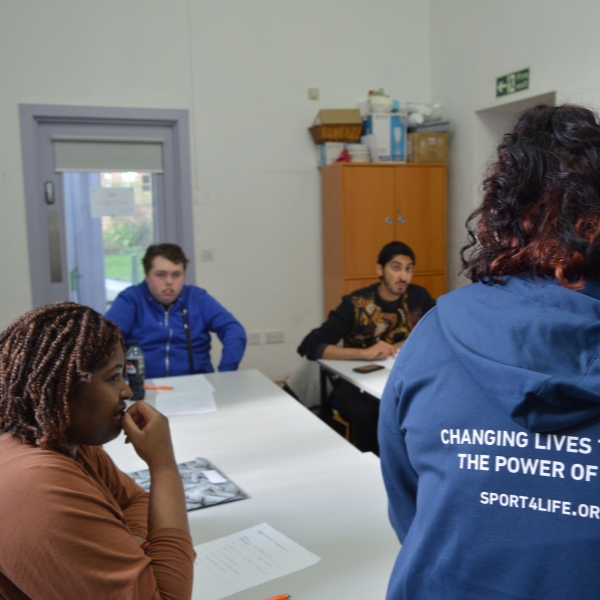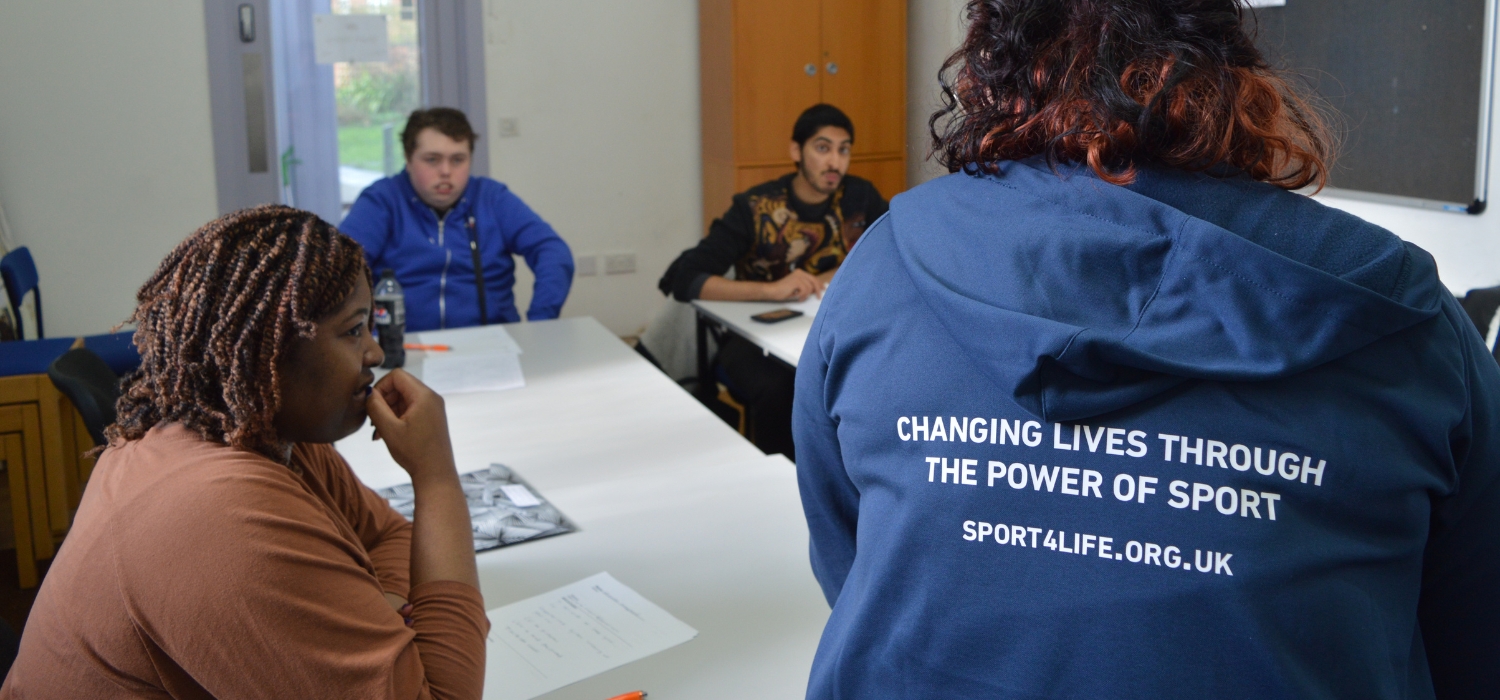How to write a CV that sets you apart
Writing a winning CV is often the difference between securing your perfect job and getting overlooked. Knowing how to make your CV stand out from others can make all the difference and gives you the best chance of landing that exciting new job opportunity.
In this guide, you’ll learn how to craft a top-notch CV that stands out from the competition and showcases your skills, experiences, and achievements in the best possible way.
First things first, what do you need help with?
What’s covered in this CV guide
Here are the key topics covered in this guide:

Need help with your CV?
Your CV is your first chance to make a positive impression with a potential employer.
We host various CV workshops and one-to-one mentoring to help young people improve their chances of finding a job.
CV Basics: How to write your first CV
What is a CV?
A CV (curriculum vitae) is a document that provides an overview of your work experience, skills, and achievements. It showcases your qualifications and professional background to potential employers and is an essential tool in the job application process.
A well-crafted CV can help you stand out from the crowd and increase your chances of getting hired.
Why is a CV important?
A CV is a crucial tool in the job search process. Here is why a well-written CV is so important:
- It serves as a first impression: A CV is often the first point of contact between you and a potential employer. It is your first chance to make a positive and lasting impression.
- It highlights your qualifications and experiences: A CV allows you to highlight your qualifications, experiences, and skills and to showcase what you can bring to the role you’re applying for.
- It demonstrates your professional background: A CV provides an overview of your professional background and accomplishments and helps an employer understand why you’re the right candidate for the job.
- It helps you stand out from the competition: With so many applicants for each job, a well-crafted CV can help you stand out from the crowd and increase your chances of being invited for an interview.
- It can be tailored to each job application: A CV can be tailored to each job application, highlighting the specific skills and experiences that are relevant to the role you’re applying for.
In short, a CV is a critical tool in the job search process. Investing time and effort in creating an effective and compelling CV that showcases your qualifications and professional background is essential to securing your ideal job.
Free CV Template: what should you include in your CV?
Your CV should be easy to read and concise (no waffle). And while it may sound time-consuming, you should tailor your CV for each job. Here’s what you should include in your CV:
- Personal details: Include your name, address, phone number, and email address. Do not include:
- Age
- Date of Birth
- Gender
- Religion
- Relationship status
- Nationality
- Photo
- This information has nothing to do with your ability to do the job. Therefore, the employer does not need to know them.
- Strong personal statement: A brief summary of your professional experience, key skills and personal values.
- Work experience: Detail your professional experience, including the name of the company you worked for, the dates you worked there, and your job title.
- Education: List your educational background, including the name of the school/college/university, any qualifications you earned and the dates you attended.
- Skills: List the relevant skills to the job you are applying for, including technical skills, soft skills, and language abilities. Link this to the job description or person specification where possible.
- Awards and certifications: List any other awards or certifications you have received that are relevant to the job you are applying for.
- Hobbies and interests: This section is optional, but it can help an employer get to know you better and understand your personal interests.
- Volunteer experience: If you have volunteer experience, list it here.
- References: Typically, it’s best to say that references are available on request. However, if you have room (and don’t go over 2-pages), you can list 2-3 professional references, including their name, job title, and contact information.
Struggling to know what to include on your CV?
With so much advice online about creating a CV, it’s sometimes easier to speak to someone who knows what they’re talking about.
Join one of our CV workshops and get one-to-one mentoring help. Improve your CV and finding your ideal job.
Improving your existing CV
CV Examples: how to improve your CV
Like many young people aged 16-29, your CV might be based on an online template or hasn’t been updated since you left school or your previous job. Here are some tips to help you improve your CV and make it stand out from the others:
- Always tailor your CV to the job you’re applying for: Start by researching the company and the job description and make sure your CV reflects the skills and experiences that the employer is looking for.
- Highlight your achievements: Rather than simply listing your responsibilities, focus on your achievements in each role. Use specific examples, numbers or measurements which enhance your accomplishments.
- For example, instead of saying, “I improved sales at the company,” you would say, “I increased sales by 15% over the course of 6 months.” This helps to provide concrete and specific information about your achievements, which is more impactful for a CV.
- Showcase your transferable skills: Emphasize the skills that you have developed through various experiences, such as teamwork, communication, and problem-solving. These will apply to every job you apply for.
- Include education and training: List any relevant education and training you have received, including school and college courses, workshops, and online training. This will show your commitment to self-improvement and career development.
- Get creative with your format: Consider if using a creative format, such as an infographic or video CV, to make your application stand out from the crowd. However, every employer might not accept this, so consider who will receive your CV.
- If you’re applying for a job that’s administratively based, consider keeping your CV simple and familiar. Creative CVs work best when you’re applying for creative roles, such as graphic designer or social media executive. However, we always recommend you have a standard one as a backup.
- Get feedback from others: You should always check your CV. Ask friends, family, or your Sport 4 Life mentor to review your CV and provide feedback on what could be improved. It’s easy to miss mistakes, so get as many people as you can to look through your CV.
- Keep your CV up to date: Regularly updating your CV to reflect any new experiences, skills, or education you have gained will help you apply for jobs quicker.
- Use keywords: Research the most common keywords used in job descriptions for the role you’re applying for and include them in your CV where relevant. However, always make sure you know what the words mean just in case you’re asked about them in the interview.
- Be concise: Keep your CV short and to the point, focusing on the most important information. Aim for a maximum of two pages – leave the reader intrigued and wanting to find out more in an interview.
By following these tips, you’ll quickly improve your CV and increase your chances of getting hired.
CV tips for young job seekers
Here are the top five things young job seekers should think about when writing a CV.
- Make every word count: It’s important to keep your CV concise and focused on relevant information for the job you’re applying for. Avoid including irrelevant information, such as personal interests that don’t demonstrate a key life skill, such as leadership or teamwork. Make sure every word will add value to your application.
- Triple-check everything: Make sure to proofread your CV carefully and correct any errors. Always get others to check your CV for mistakes. If you list ‘attention to detail’ as one of your skills and then miss a spelling mistake, you’ll void that skill in the eyes of the employer.
- Customise your CV: CV templates are a really useful starting point, but it’s important to customise your CV for each job you’re applying for. A generic template you downloaded online may not highlight your unique qualifications and experiences in the best way possible.
- Focus on your achievements: Employers are interested in what you have accomplished, not just your responsibilities. They will be looking for how you will add value to their company, so make sure to focus on your achievements and what they meant for the company/organisation you were working for.
- Include a cover letter/email: A personalised cover letter allows you to introduce yourself and showcase your written communication skills. Tailor the letter to the job you’re applying for and include your motivation for the role and why you are a good fit for the company and the position.
What to do after you’ve written your CV
Once you’ve written your CV, there are several steps you should take to prepare for the job search process:
- Proofread your CV: Thoroughly proofread your CV for spelling and grammar errors, make any necessary corrections and get someone you trust to look at it again.
- Create a cover letter/email: Avoid sending your CV on its own. Including a cover letter with your CV allows you to explain why you’re the right candidate for the job. You should always tailor your cover letter to the job you’re applying for and show that you’ve researched the company.
- Use the right format: It might be best to save and send your CV as a PDF rather than sending it as a Word or Google document. A PDF will keep the format and appearance of your CV.
- Check your CV submission: Make a note of who you send your CV to. If you don’t receive a confirmation after a couple of days, send a follow-up email or make a phone call to verify receipt. This will increase your chances of being remembered and establishes a relationship with the employer before an interview.
- Prepare for interviews: Keep your research notes. When you tailor your CV and cover letter, keep your notes on the company to help with interview preparation. It will save you from having to start your research all over again.
By taking these steps, you’ll be well on your way to landing your dream job!
Let us help you get job ready
We can give your CV a boost with additional training, qualifications and volunteer experience.
Our CV workshops and one-to-one mentoring can help you fill your CV with things employers are looking for. Stand out from others, and get one step closer to your dream job.
Need help with your CV?
As the leading sport for employment charity in the West Midlands, we can help you develop the life skills needed to move into further education, training and employment.
We host various CV workshops and one-to-one mentoring to help young people improve their chances of finding a job.

